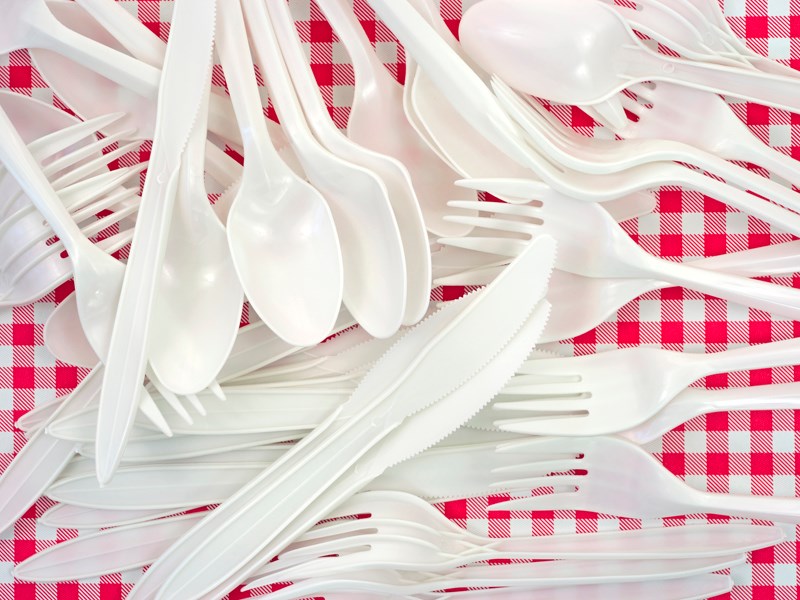Even if you diligently avoid bringing single-use, plastic to-go coffee cups and plastic utensils into your household, almost inevitably they end up sneaking in through the backdoor.
When you spy the contraband, you put on your superhero cape and rescue it from the garbage bin. When you bring recyclables to the local depot, however, good feelings sink when you find many plastic items are not accepted. How is it that seemingly good plastic is turned away?
A quick investigation into the variety of plastics out there reveals that plastic is not all created equal. If you flip over most single-use plastic items, you will find a reassuring triangle with a number in it. Those resin codes are not consistently used by industry; they only identify the type of polymer the item is made from.
BC’s recycling program, Recycle BC (formerly MMBC), does not rely on codes to determine an item’s acceptability, though it can be helpful to wrap your mind around the differences between plastic types. Here is a quick rundown of the seven resin codes:
1. PET (example: plastic drinking bottles)
Valuable to industry as it is often transparent and food grade. The Return-It program offers cash in return.
2. HDPE (example: milk jugs)
Also valuable and accepted at local depots and curbside if it is packaging, but not if it is a product, such as a plastic utensil.
3. PVC (example: piping)
Known for being potentially hazardous to anyone exposed to toxins released during processing, it is not recyclable locally.
4. LDPE (example: shopping bags)
These bags are accepted at depots but not curbside.
5. PP (example: rope, carpet)
Not recyclable locally.
6. PS or styrofoam
Depots accept packaging, but curbside does not. Beach styrofoam and closed-cell foam (example: swimming noodles) are not accepted by our local program.
7. Others, including laminates (example: Ziplock fruit bags)
Laminates are lightweight, cheap and have the ability to keep food fresh longer. It is not recyclable through our local program, but found everywhere in food packaging.
Confused yet? Not surprising, given the complex truth of plastic. Perhaps it’s best to avoid bringing it into our lives in the first place.
Let’s Talk Trash is Powell River Regional District’s waste-management education program.



